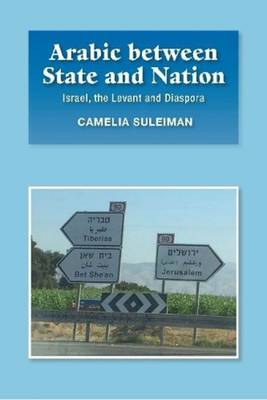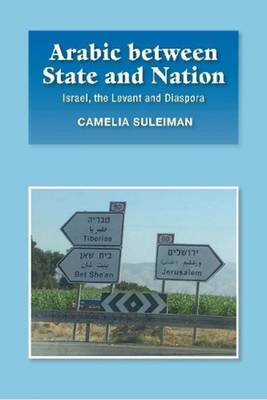
- Afhalen na 1 uur in een winkel met voorraad
- Gratis thuislevering in België vanaf € 30
- Ruim aanbod met 7 miljoen producten
- Afhalen na 1 uur in een winkel met voorraad
- Gratis thuislevering in België vanaf € 30
- Ruim aanbod met 7 miljoen producten
Zoeken
€ 135,95
+ 271 punten
Omschrijving
In order to better understand the political conditions of the Arabic language in Israel, a comparison with the political conditions of Arabic in the Levant as well as the Diaspora is necessary. Comparison consists of macro factors, such as nation-state building, and at the micro level, the daily public usage of Arabic. While the relationship between language and nationhood is well documented, study of the unique socio-political situation of the use of Arabic in the Jewish state, and in particular language usage in East Jerusalem, has hitherto not been addressed. The removal of Arabic as an official language in Israel in 2018 has major implications for IsraeliPalestinian accommodation. Research for the book relied on ethnographic fieldwork as well as sociolinguistic literature. Investigation is wide-ranging: distinguishing the different public presences of language; the state of literacy (publishing, education); and (formal and informal) interviews with students, teachers and journalists. Linguists often consider the Levant to belong to one dialect group but post-1918 people in the Levant have had to deal with separate political realities, and language differences reflect their unique political and social circumstances. The history of European colonialism is but one influencing factor. Diaspora comparison engages with the US city of Dearborn, Michigan, home to the largest Arab American community in one locality. How does this community find meaning in both being American and a threat to national security? This dilemma is mirrored in the life of Palestinians in Israel. Security and securitisation are relational concepts (Rampton and Charalambous 2019), and language plays a large part in personal sense of belonging. Analytical tools such as the concept of seamline (Eyal 2006), and indexicality (Silverstein 1979), assist in coming to terms with the metapragmatic meanings of language. This important book reaches far beyond linguistic difference; it goes to the heart of political, social and economic despair faced by multiple communities.
Specificaties
Betrokkenen
- Auteur(s):
- Uitgeverij:
Inhoud
- Aantal bladzijden:
- 240
- Taal:
- Engels
Eigenschappen
- Productcode (EAN):
- 9781789761696
- Verschijningsdatum:
- 1/11/2022
- Uitvoering:
- Paperback
- Formaat:
- Trade paperback (VS)
- Afmetingen:
- 156 mm x 234 mm
- Gewicht:
- 290 g

Alleen bij Standaard Boekhandel
+ 271 punten op je klantenkaart van Standaard Boekhandel
Beoordelingen
We publiceren alleen reviews die voldoen aan de voorwaarden voor reviews. Bekijk onze voorwaarden voor reviews.








